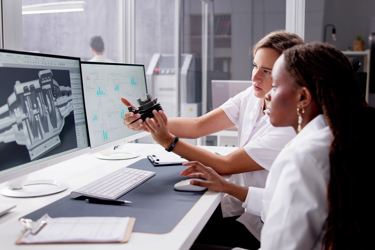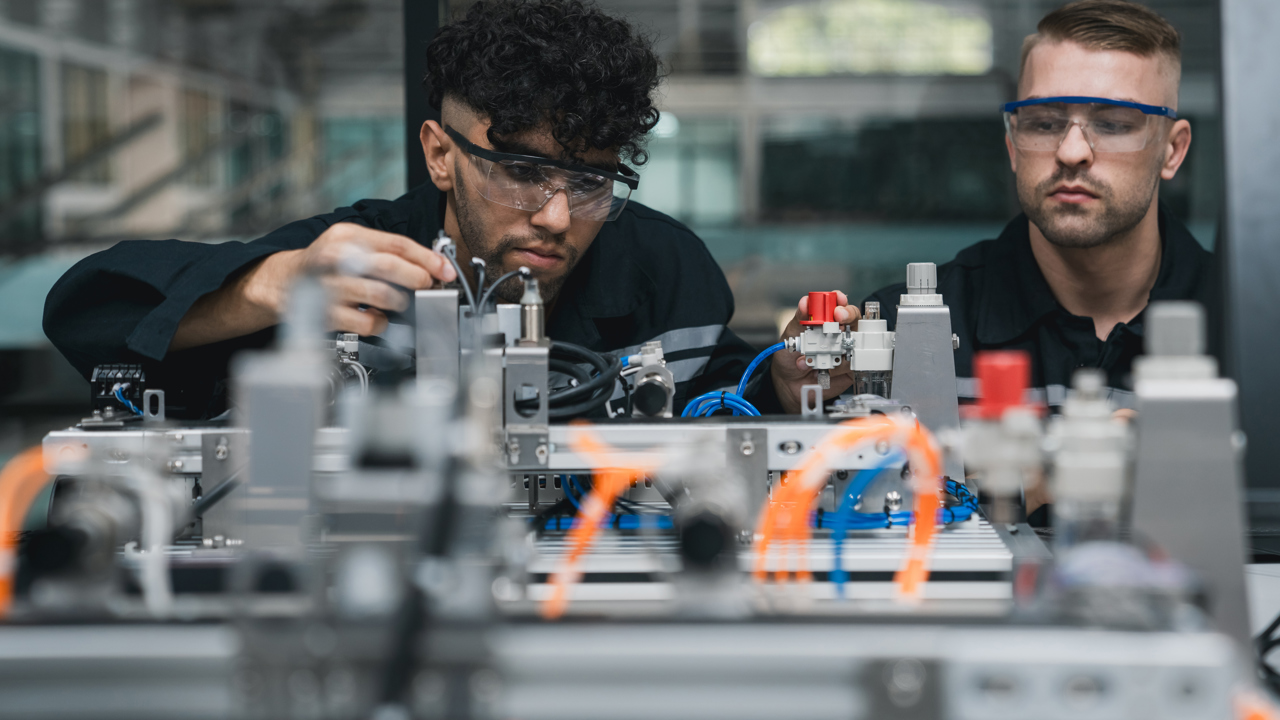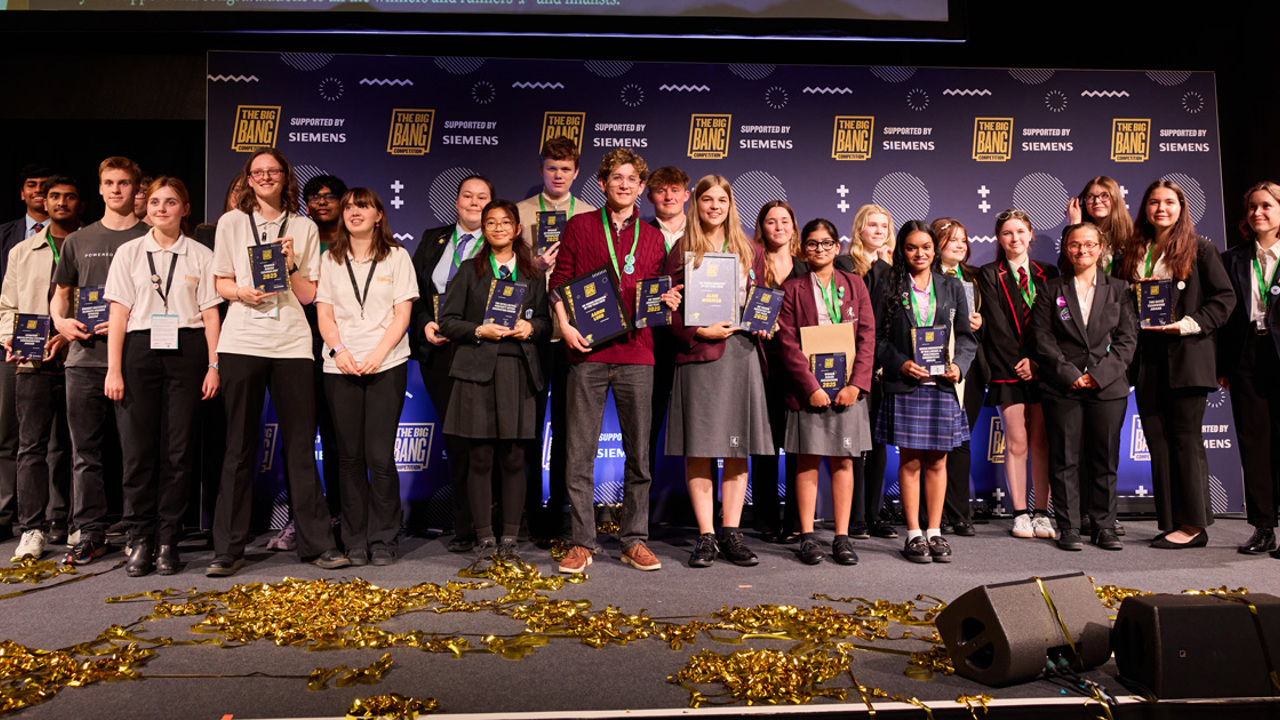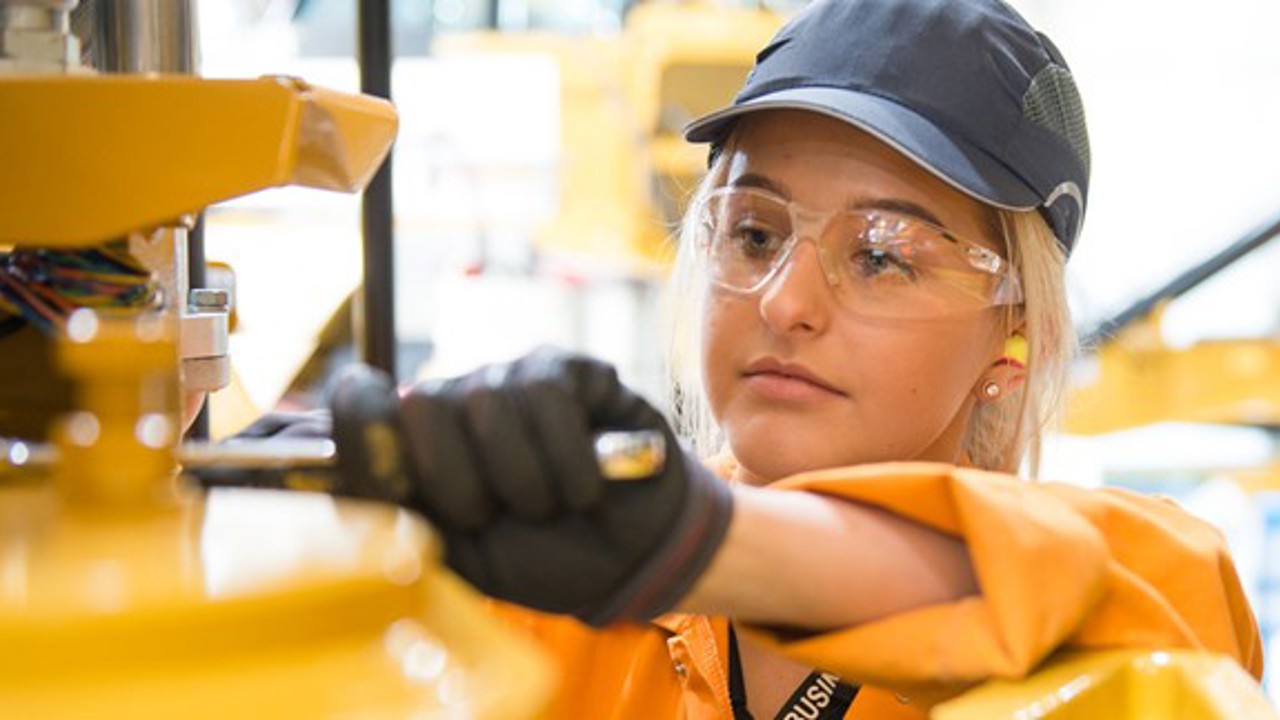Education and industry must work closely together to support future generations into STEM careers
By Susi Farnworth, Head of EDI, EngineeringUK
We invited some of EngineeringUK’s Corporate Members to a recent Teacher Network session. The Teachers Network has been running for 3 years and was set up to enable teachers to help shape engineering and technology outreach work, by informing EngineeringUK’s work. The network comprises teachers from across the UK, the majority of whom are from schools with higher proportions of students from groups underrepresented in engineering.

We know from working closely with employers, that skills shortages and recruitment are a real challenge for them. And we know from teachers that they are frequently looking for more opportunities for their students to link with industry, including work experience. So both groups were really interested to come together and EngineeringUK are perfectly placed to facilitate dialogue between business and education.
It was great to have a range of perspectives in the (virtual!) room. Everyone was keen to learn from one-another and explore opportunities for more young people to grow their awareness of technology and engineering careers. Engineering jobs are predicted to grow in all UK regions between now and 2030 – faster than other occupations. Young people need to know what roles are available, be attracted to them, and understand the routes into engineering and tech.
Education and industry working together
Across our members, a huge range of outreach initiatives are being delivered. The companies who attended openly shared their initiatives and current projects to get feedback from teachers and understand how they can better build strategic relationships with schools.
Resources, resources, resources
It's clear that schools want to help inform how industry develops resources. The teachers’ top tips were that resources developed should:
- Link to the curriculum and show how it enhances lessons (lesson plans are really helpful)
- Include a variety of content – quizzes, case studies, features and so on
- Be free and easy to access
- Be clearly targeted to different audiences: teachers, parents and young people need a slightly different emphasis
- Allow young people to feel part of the conversation.
Opportunities for additional resources include:
- Video is growing – young people engage with real people in real situations telling real stories – not necessarily corporate videos with suits and high production values! Engineers featured in videos should be real and relatable so that young people can see themselves in the same position. For example, they could talk about how they got into the profession without going to university, or how they still feel imposter syndrome
- Changing ways of learning – nano content (such as TikTok)
- Early careers resources need to embed a range of perspectives
- Pre-primary resources
- Webinars work for parents as they often need educating on the breadth of new careers out there.
The businesses in the room recognised the importance of feedback from schools in helping shape and improve their resources.
Online/virtual work experience
The businesses spoke about how offering virtual work experience has been an important strategic tool to make their offer inclusive and reach a wider range of young people including those who would not usually get the opportunity and reaching nationally, rather than just local. They described how it works with, or is a route into, face to face work experience. There was a discussion around how businesses ensure their work experience is inclusive for those with SEND as everyone wanted to make sure all young people can get value from work experience. It was highlighted that parents often need reassurance around work experience and webinars were seen as a good way to resolve this.
A focus on careers
EngineeringUK research shows that taking part in STEM inspiration activities boosts young people’s knowledge of and interest in engineering careers. School students who attend one or more STEM careers activity are 3.5 times more likely to know what people working in engineering do, and 3.4 times more likely to consider a career in engineering.
Both groups were keen to communicate what careers in engineering and technology actually look like and broaden young people’s perspectives. Engineering and tech skills are needed in all sectors: from creative, digital and big data to advanced manufacturing and rail transport and one teacher said "let’s widen the eyes of our students"!
Teachers want:
- Knowledge of all routes into these roles
- Primary-specific programmes – so younger children start making the links and begin to understand ‘I can do that’
- To help young people see the person and the role, not just the subjects or requirements by showing real people
Businesses were interested in:
- Locality – encouraging and nurturing local talent
- Mentoring – where colleagues support students on their career pathway
- Work experience that could lead to apprenticeships or T Levels
One business noted they’re moving away from subjects as requirements, moving towards skills and potential. The ideal outcome would be for all young people to see something they aspire to ‘I can do that’.
Societal impact – being green, being human
Our research shows that ‘green’ engineering jobs are on the increase – a trend likely to continue. It's great to acknowledge that 70% of young people agreed that ‘engineers are important for improving the environment’. And those who agreed were 7 times more likely to be interested in a career that involves engineering than those who did not.
Social mobility and inclusion
Businesses talked about their commitment to supporting local communities and strategic connections to schools and colleges in their regions, as well as reaching economic cold spots and deprived areas, and focusing on schools that don’t usually get these opportunities. EngineeringUK research shows that schools in deprived areas are more likely to face teacher shortages and have STEM subjects taught by a non-specialist.
Linked to this, schools highlighted the challenges reaching disengaged parents and carers. Inspiring them is as important as inspiring young people to broaden their aspirations. It was great to hear members have, and want to grow, their information and resources for parents. Overall, business recognised social mobility as an area of focus, and growth could come from working with social mobility partners and outreach specialists.
Next steps
Any teachers looking to get involved with EngineeringUK’s Teacher Network can get in touch.
Huge thanks go to Jacobs, the Met Office, Siemens and WSP.
EngineeringUK will continue its work to enable teachers from schools with high proportions of underrepresented groups of young people to help shape their outreach.




